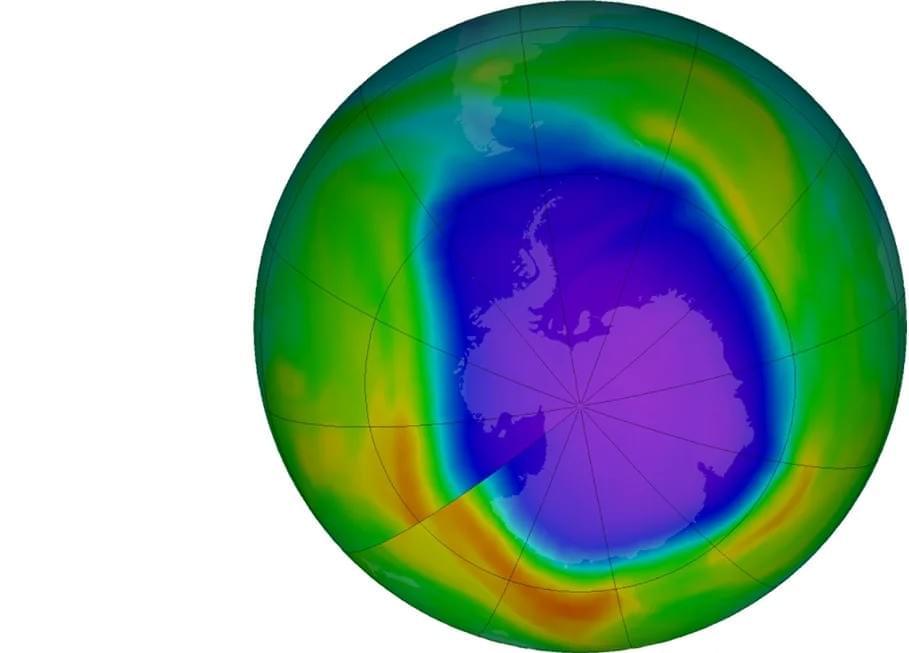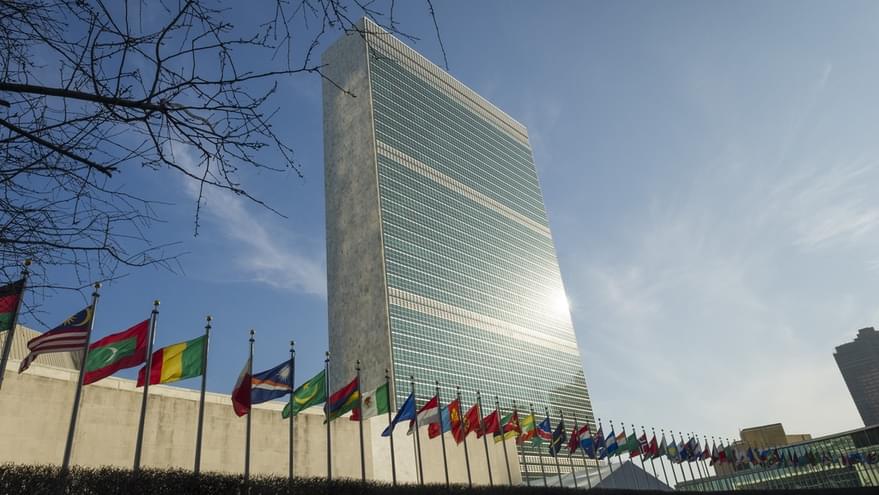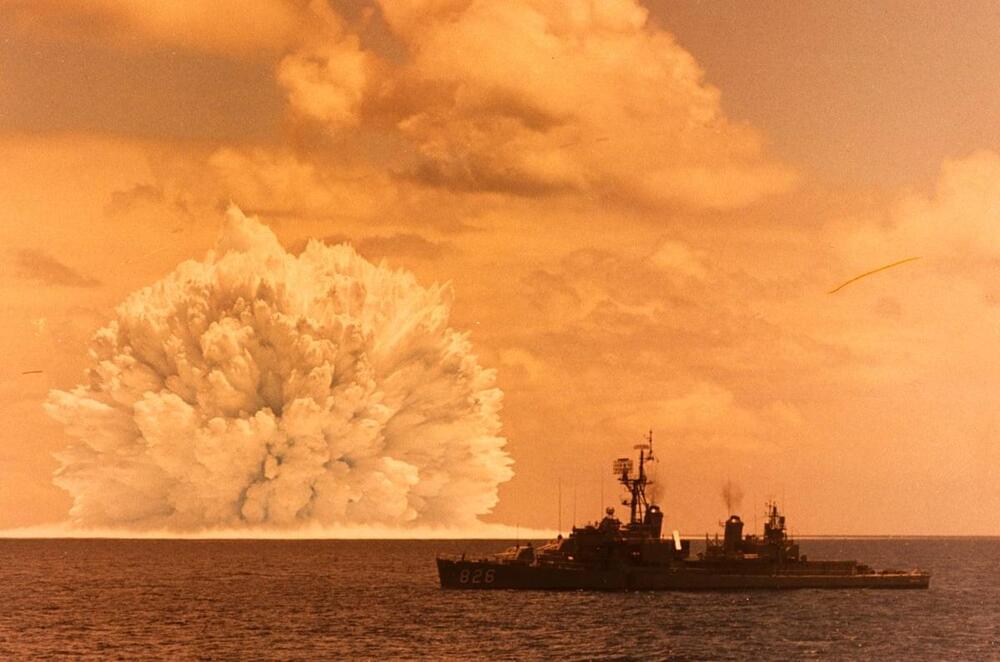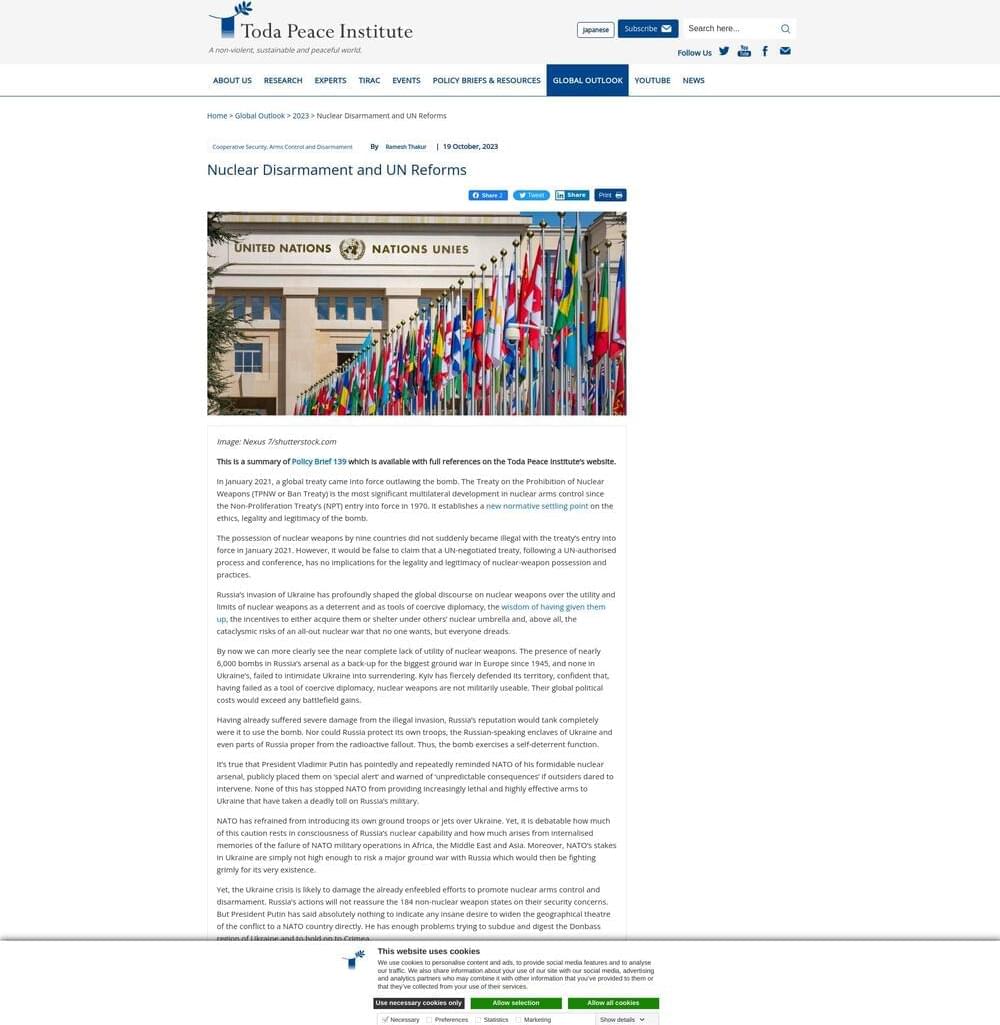Australia has offered a lifeline to the people of Tuvalu, whose island is threatened by rising sea levels. But the deal comes with strings attached – and there will be millions more climate migrants in need of refuge by 2050


Adriano V. Autino gave a Technical Presentation at U.N. COPUOS Legal Subcommittee, the 6 May 2025, on behalf of Dennis O’Brien, Chair of the Space Renaissance Academy Space Law Comittee: “Clarifying ambiguities of the Outer Space Treaty”

Hydroacoustic signals captured by the world’s international nuclear monitoring system suggest an underwater landslide may have broken communications cables and disrupted internet traffic in west African countries for several weeks in March 2024.
Researchers used data collected by hydrophones installed by the International Monitoring System of the Comprehensive Nuclear-Test-Ban Treaty Organization (CTBTO) to determine the location of the possible landslide, placing it along the steep slopes of Trou Sans Fond Canyon offshore of Ivory Coast.
The proposed landslide corresponds with the timing and location of four broken cables in the canyon, according to Vaibhav Vijay Ingale of UC San Diego’s Scripps Institution of Oceanography and colleagues, who shared their findings in Seismological Research Letters.


What impacts have climate change mitigation strategies had on the ozone layer? This is what a recent study published in Nature hopes to address as a team of researchers led by the Massachusetts Institute of Technology (MIT) investigated the rate of Antarctic ozone recovery due to a reduction in human-caused ozone-depleting substances (ODSs). This study has the potential to help researchers, climate scientists, legislators, and the public better understand the benefits of climate change mitigation strategies on healing the environment for both the short and long term.
For the study, the researchers used a combination of satellite imagery data and a series of computer models to ascertain the extent of the Antarctic ozone recovery based on seasons and altitude between 2005 and now. The team conducted various models to identify a pattern in Antarctic ozone recovery, which they call a “fingerprint”. After comparing this to the satellite data, the team ascertained that the Antarctic ozone has been healing due to decreased levels of ODSs.
“After 15 years of observational records, we see this signal to noise with 95 percent confidence, suggesting there’s only a very small chance that the observed pattern similarity can be explained by variability noise,” said Peidong Wang, who is a PhD student in MIT’s Department of Earth, Atmospheric and Planetary Sciences and lead author of the study. “This gives us confidence in the fingerprint. It also gives us confidence that we can solve environmental problems. What we can learn from ozone studies is how different countries can swiftly follow these treaties to decrease emissions.”
Rufo Guerreschi.
https://www.linkedin.com/in/rufoguerreschi.
Coalition for a Baruch Plan for AI
https://www.cbpai.org/
0:00 Intro.
0:21 Rufo Guerreschi.
0:28 Contents.
0:41 Part 1: Why we have a governance problem.
1:18 From e-democracy to cybersecurity.
2:42 Snowden showed that international standards were needed.
3:55 Taking the needs of intelligence agencies into account.
4:24 ChatGPT was a wake up moment for privacy.
5:08 Living in Geneva to interface with states.
5:57 Decision making is high up in government.
6:26 Coalition for a Baruch plan for AI
7:12 Parallels to organizations to manage nuclear safety.
8:11 Hidden coordination between intelligence agencies.
8:57 Intergovernmental treaties are not tight.
10:19 The original Baruch plan in 1946
11:28 Why the original Baruch plan did not succeed.
12:27 We almost had a different international structure.
12:54 A global monopoly on violence.
14:04 Could expand to other weapons.
14:39 AI is a second opportunity for global governance.
15:19 After Soviet tests, there was no secret to keep.
16:22 Proliferation risk of AI tech is much greater?
17:44 Scale and timeline of AI risk.
19:04 Capabilities of security agencies.
20:02 Internal capabilities of leading AI labs.
20:58 Governments care about impactful technologies.
22:06 Government compute, risk, other capabilities.
23:05 Are domestic labs outside their jurisdiction?
23:41 What are the timelines where change is required?
24:54 Scientists, Musk, Amodei.
26:24 Recursive self improvement and loss of control.
27:22 A grand gamble, the rosy perspective of CEOs.
28:20 CEOs can’t really say anything else.
28:59 Altman, Trump, Softbank pursuing superintelligence.
30:01 Superintelligence is clearly defined by Nick Bostrom.
30:52 Explain to people what “superintelligence” means.
31:32 Jobs created by Stargate project?
32:14 Will centralize power.
33:33 Sharing of the benefits needs to be ensured.
34:26 We are running out of time.
35:27 Conditional treaty idea.
36:34 Part 2: We can do this without a global dictatorship.
36:44 Dictatorship concerns are very reasonable.
37:19 Global power is already highly concentrated.
38:13 We are already in a surveillance world.
39:18 Affects influential people especially.
40:13 Surveillance is largely unaccountable.
41:35 Why did this machinery of surveillance evolve?
42:34 Shadow activities.
43:37 Choice of safety vs liberty (privacy)
44:26 How can this dichotomy be rephrased?
45:23 Revisit supply chains and lawful access.
46:37 Why the government broke all security at all levels.
47:17 The encryption wars and export controls.
48:16 Front door mechanism replaced by back door.
49:21 The world we could live in.
50:03 What would responding to requests look like?
50:50 Apple may be leaving “bug doors” intentionally.
52:23 Apple under same constraints as government.
52:51 There are backdoors everywhere.
53:45 China and the US need to both trust AI tech.
55:10 Technical debt of past unsolved problems.
55:53 Actually a governance debt (social-technical)
56:38 Provably safe or guaranteed safe AI
57:19 Requirement: Governance plus lawful access.
58:46 Tor, Signal, etc are often wishful thinking.
59:26 Can restructure incentives.
59:51 Restrict proliferation without dragnet?
1:00:36 Physical plus focused surveillance.
1:02:21 Dragnet surveillance since the telegraph.
1:03:07 We have to build a digital dog.
1:04:14 The dream of cyber libertarians.
1:04:54 Is the government out to get you?
1:05:55 Targeted surveillance is more important.
1:06:57 A proper warrant process leveraging citizens.
1:08:43 Just like procedures for elections.
1:09:41 Use democratic system during chip fabrication.
1:10:49 How democracy can help with technical challenges.
1:11:31 Current world: anarchy between countries.
1:12:25 Only those with the most guns and money rule.
1:13:19 Everyone needing to spend a lot on military.
1:14:04 AI also engages states in a race.
1:15:16 Anarchy is not a given: US example.
1:16:05 The forming of the United States.
1:17:24 This federacy model could apply to AI
1:18:03 Same idea was even proposed by Sam Altman.
1:18:54 How can we maximize the chances of success?
1:19:46 Part 3: How to actually form international treaties.
1:20:09 Calling for a world government scares people.
1:21:17 Genuine risk of global dictatorship.
1:21:45 We need a world /federal/ democratic government.
1:23:02 Why people are not outspoken.
1:24:12 Isn’t it hard to get everyone on one page?
1:25:20 Moving from anarchy to a social contract.
1:26:11 Many states have very little sovereignty.
1:26:53 Different religions didn’t prevent common ground.
1:28:16 China and US political systems similar.
1:30:14 Coming together, values could be better.
1:31:47 Critical mass of states.
1:32:19 The Philadelphia convention example.
1:32:44 Start with say seven states.
1:33:48 Date of the US constitutional convention.
1:34:42 US and China both invited but only together.
1:35:43 Funding will make a big difference.
1:38:36 Lobbying to US and China.
1:38:49 Conclusion.
1:39:33 Outro

A recently adopted United Nations treaty could lead to invasive digital surveillance, human rights experts warn.
NEW YORK CITY —The United Nations approved its first international cybercrime treaty yesterday. The effort succeeded despite opposition from tech companies and human rights groups, who warn that the agreement will permit countries to expand invasive electronic surveillance in the name of criminal investigations. Experts from these organizations say that the treaty undermines the global human rights of freedom of speech and expression because it contains clauses that countries could interpret to internationally prosecute any perceived crime that takes place on a computer system.

WASHINGTON — Russia, as expected, vetoed April 24 a United Nations Security Council resolution crafted in response to reports that the country was developing a nuclear anti-satellite weapon.
Russia cast the only vote against the draft resolution that reaffirmed provisions in the Outer Space Treaty prohibiting the placement of nuclear weapons or other weapons of mass destruction in space. Thirteen other members of the Security Council voted in favor of the resolution while China abstained. As a permanent member of the Security Council, though, Russia’s vote acted as a veto preventing adoption of the resolution.
Japan and the United States drafted the Security Council resolution, which they billed as the first devoted to outer space issues. The resolution directed members to uphold Article 4 of the Outer Space Treaty, which forbids countries from placing nuclear weapons in orbit or on celestial bodies. It also called on countries not to develop nuclear weapons or other weapons of mass destruction specifically designed to be placed in orbit.

Nuclear arms are the most destructive, indiscriminate and monstrous weapons ever produced – but today, we can all celebrate a major milestone in the long march towards peace: the Treaty on the Prohibition of Nuclear Weapons (TPNW) is now part of international law!
The year 2021 also marks the 50th anniversary of Greenpeace, which began life in September 1971 when a small group of activists set sail to the island of Amchitka, off the west coast of Alaska, to try and stop nuclear weapons testing from taking place. Greenpeace could not be more delighted that in the anniversary year of our founding journey, we can join the celebration to mark this historic Treaty coming into force and pay our deepest respects to advocates for this momentous achievement, led by the International Campaign to Abolish Nuclear Weapons (ICAN).
Greenpeace France interviewed Jean-Marie Collin of ICAN France about the challenges and prospects that arise from the Treaty’s entry into force.

Although essentially the United Nations are now making nuclear weapons illegal with new treaties like nuclear disarmament. Russia currently has taken another route for globalization and possibly nuclear escalation. As currently the doomsday clock seems closer to midnight which could mean the end of the world scenarios due to Russias escalation and the possibility of all out nuclear war globally and then nuclear annihilation of the planet. Even with current wars are actually seemingly always going on but this global escalation of nuclear war is a zero sum game as no one would be the winner due to radiation levels circulating the planet. I do think that the us and china are in a treaty but so far Russia is still escalating which now holds the world now ransom.
This is a summary of Policy Brief 139 which is available with full references on the Toda Peace Institute’s website.
In January 2021, a global treaty came into force outlawing the bomb. The Treaty on the Prohibition of Nuclear Weapons (TPNW or Ban Treaty) is the most significant multilateral development in nuclear arms control since the Non-Proliferation Treaty’s (NPT) entry into force in 1970. It establishes a new normative settling point on the ethics, legality and legitimacy of the bomb.
The possession of nuclear weapons by nine countries did not suddenly became illegal with the treaty’s entry into force in January 2021. However, it would be false to claim that a UN-negotiated treaty, following a UN-authorised process and conference, has no implications for the legality and legitimacy of nuclear-weapon possession and practices.